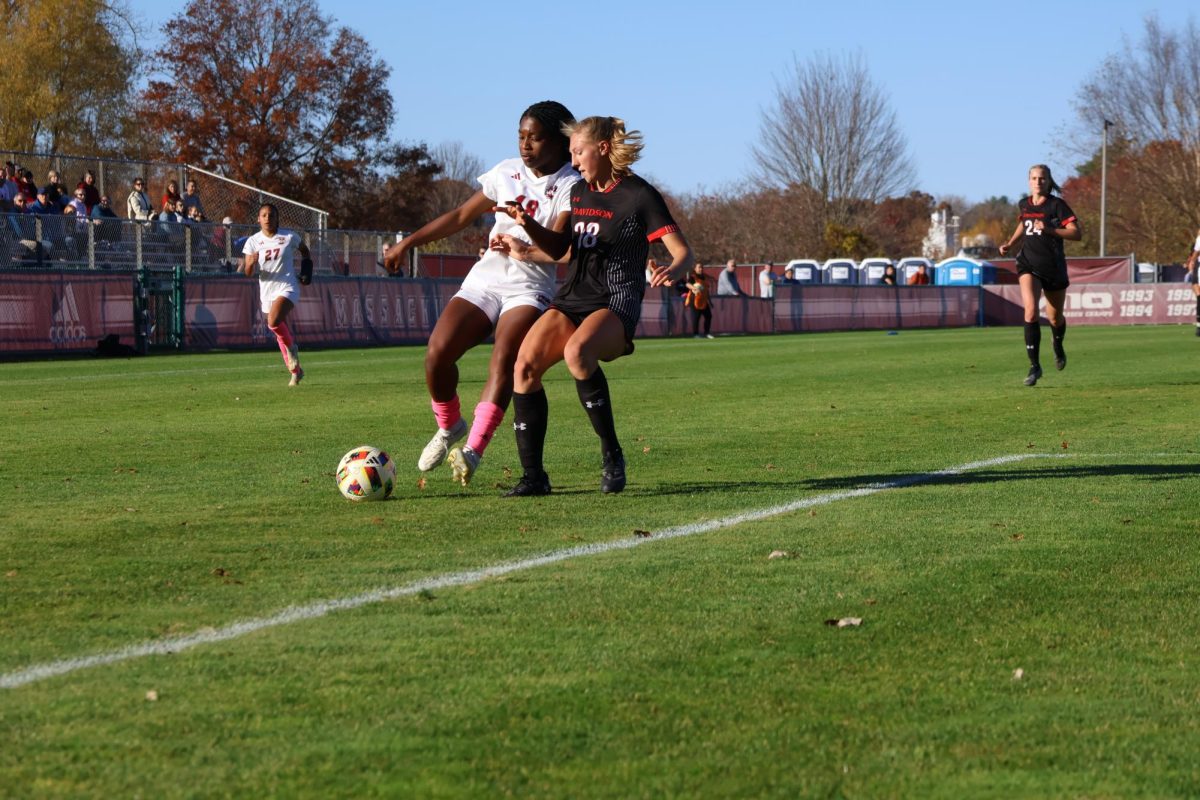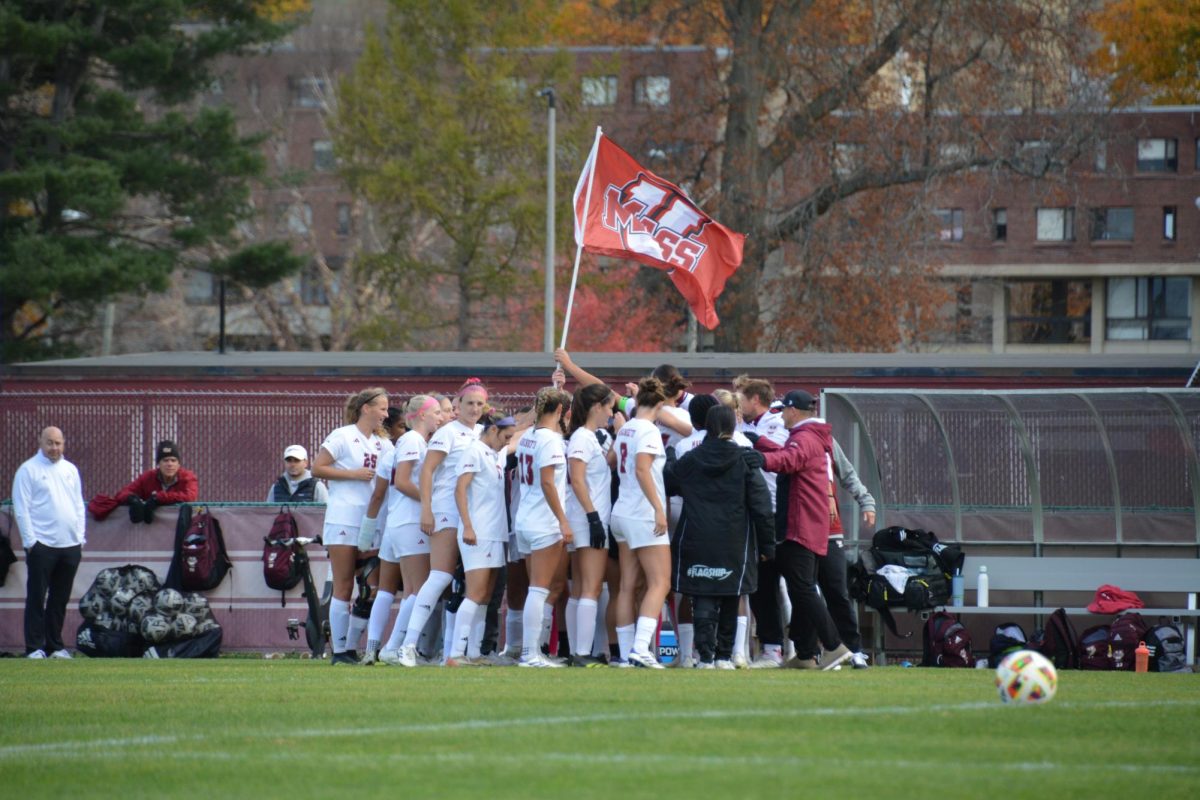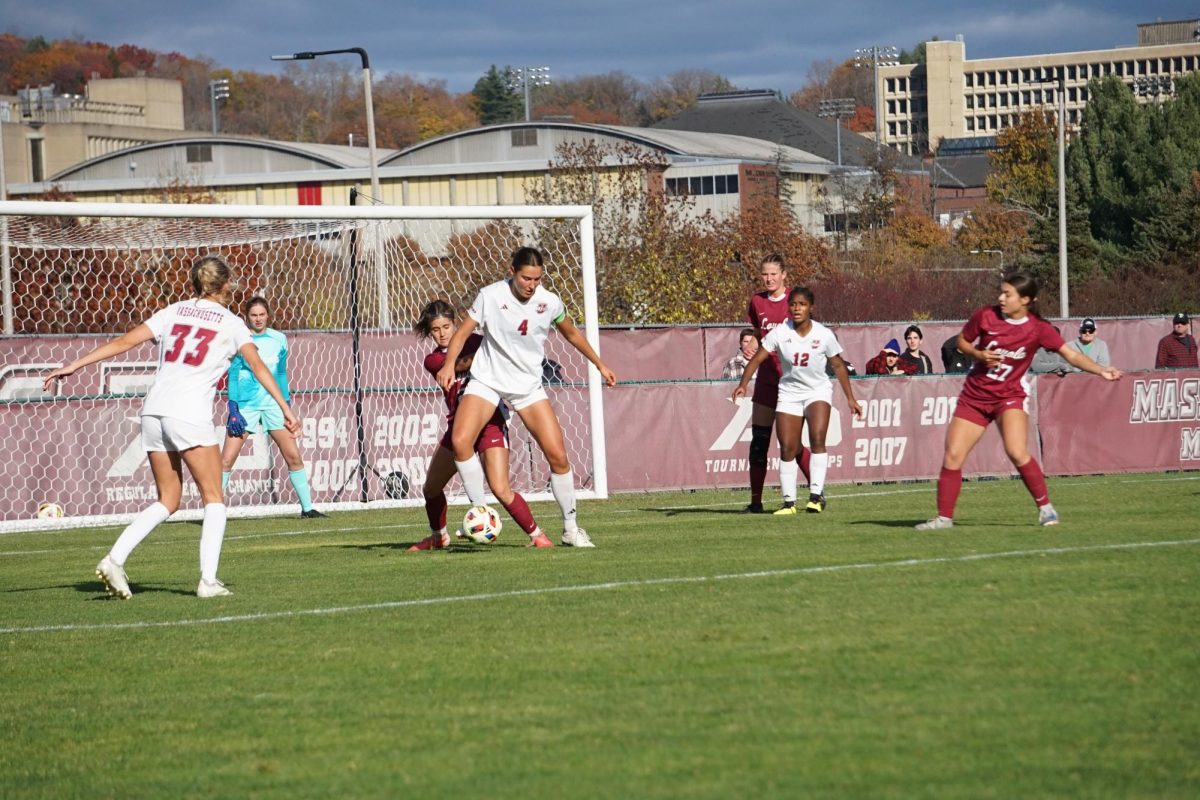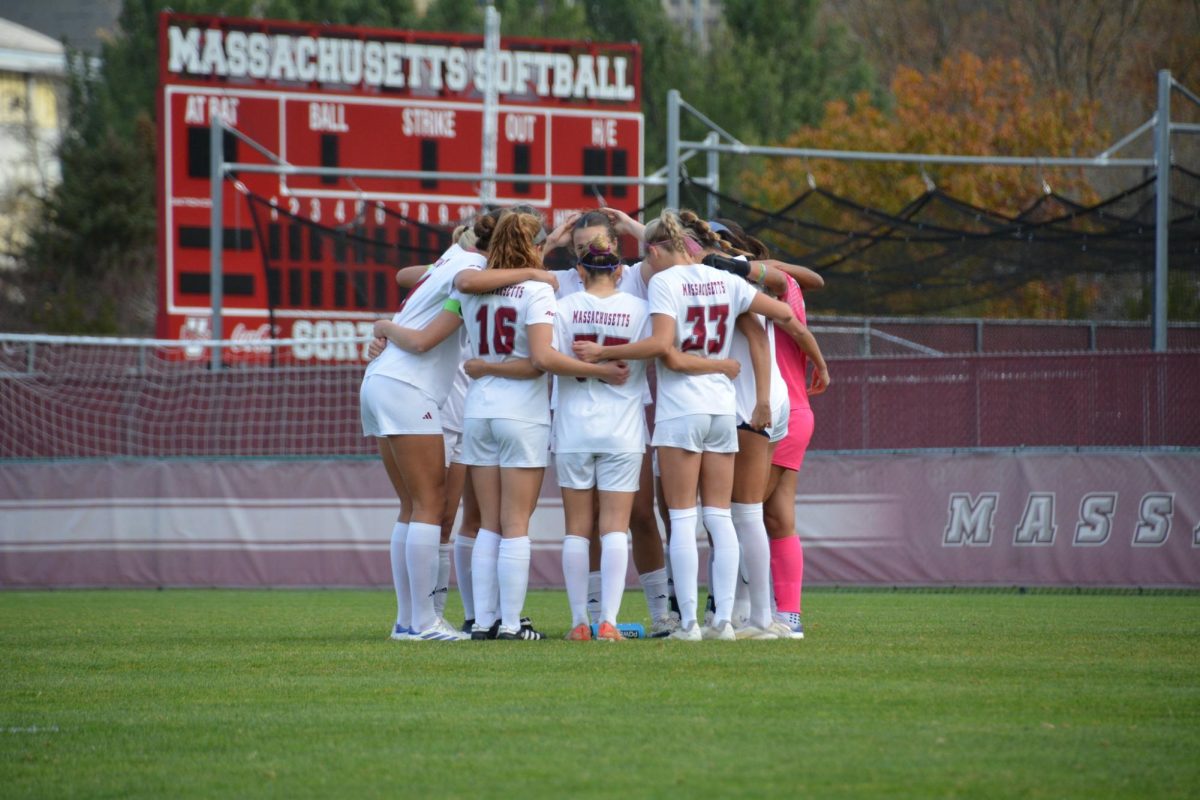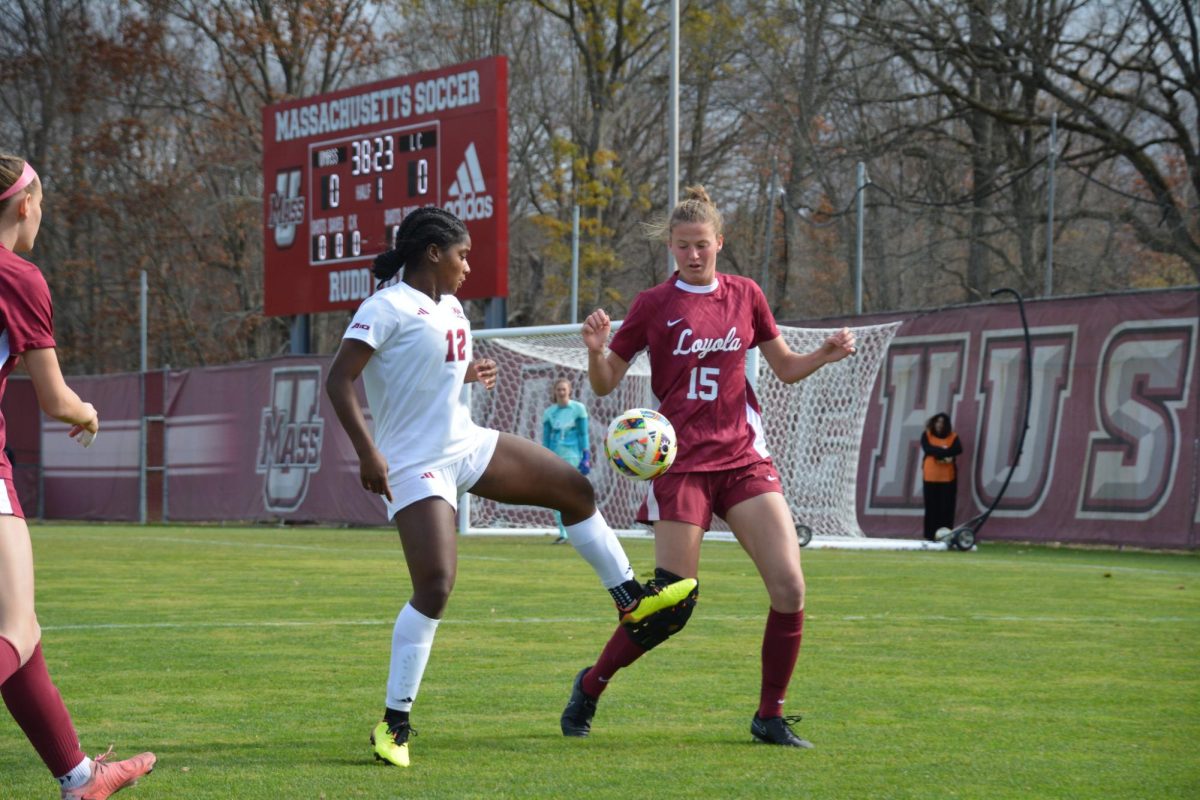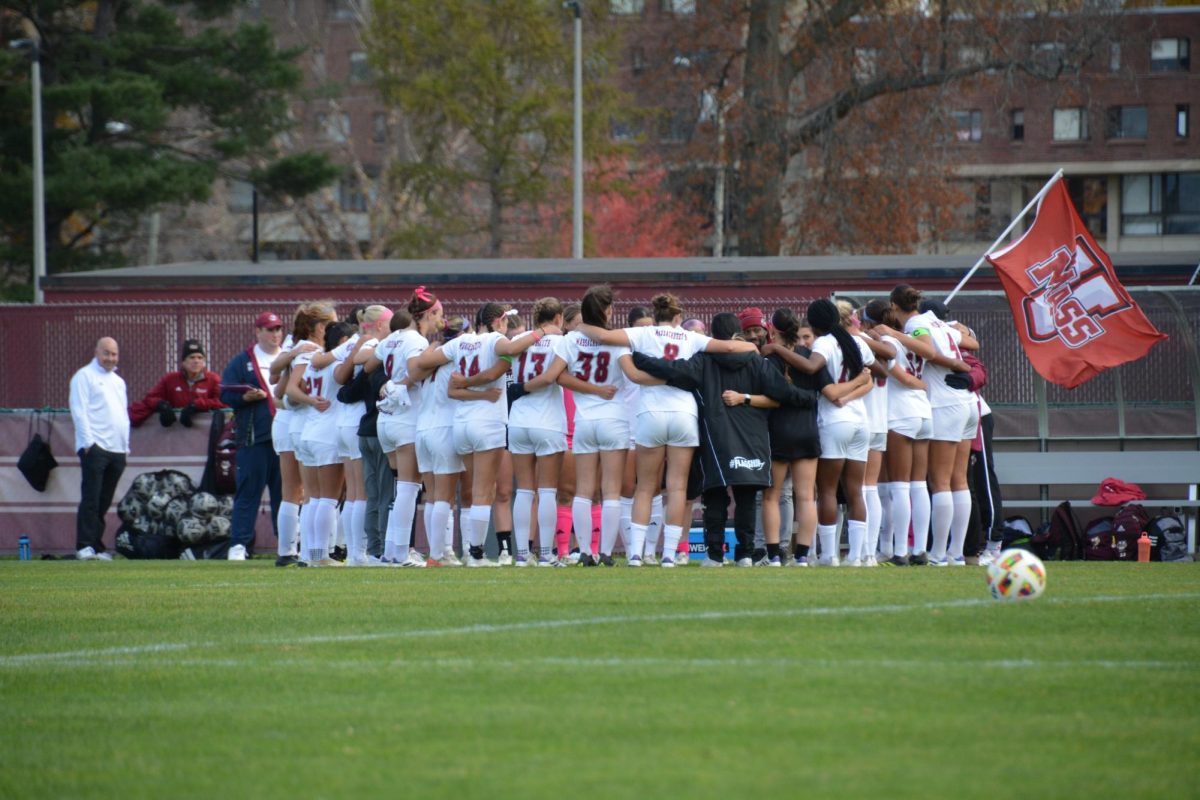 In his 28 years of coaching collegiate women’s soccer – 21 at the helm of the Massachusetts women’s soccer team – Jim Rudy has compiled a 313-160-28 record. That record will remain as-is, since Rudy announced his retirement earlier this summer.
In his 28 years of coaching collegiate women’s soccer – 21 at the helm of the Massachusetts women’s soccer team – Jim Rudy has compiled a 313-160-28 record. That record will remain as-is, since Rudy announced his retirement earlier this summer.
Citing the need to be with family, Rudy leaves the place where he coached four Minutewomen squads to Atlantic 10 Conference titles.
“I still love the sport and I’m going to continue doing it more now as a player than as a coach,” Rudy said of the beginning of his life after coaching.
Looking back on his many team and personal accolades, he never entered coaching situations in which he had all of the parts to a winning team already at his disposal.
Rudy started his coaching career shortly after graduating from Rollins College in 1972. Three years into his graduate work at Rollins, he received the call to lead the men’s soccer program at the University of Central Florida. The program was trapped at club status, but Rudy didn’t treat it like one. He still instituted years of eligibility and other guidelines used by varsity programs.
Rudy noted that when he came to coach the Golden Knights, many of the players were older than he was. There was even a 37-year-old ex-Austrian international player on the team. Nevertheless, Rudy got to work right away building an entirely new team from scratch. He hit the recruiting trail and filled the program with entirely new players and tested them by scheduling matches against varsity teams.
After two years, Rudy coached UCF at the varsity level. In 1981, he coached the first women’s team in Golden Knight history, leading them to four postseason appearances in seven years.
Both teams had similar success under nearly-identical training regimens.
“I coached [the women] in pretty much the same way I coached the men,” he said. “I trained them as hard as I did the men and I don’t think I could’ve gotten away with anything less than that. I don’t think the women would’ve tolerated that. The way I look at it, I got twice the experience in eight years than anyone in the country.”
This experience translated into a trip to the NCAA National Championship game in his second year as women’s head coach. UCF reached the NCAA National Semi-Finals in 1987 as well, led by Michelle Akers, who won the Hermann Trophy – the women’s soccer equivalent of the Heisman Trophy – in 1988. However, Rudy already left the Golden Knights for the program that gave him his final loss at UCF, Massachusetts.
During his tenure at UMass, Rudy led the Minutewomen into the postseason nine times, including a Final Four appearance in 1993. While guiding UMass to the NCAA tournament, he became the only coach in the history of Division I collegiate women’s soccer to lead teams from two different schools to Final Four appearances.
While coaching in Amherst, Rudy compiled a 239-137-22 record, but his impact on the sport goes far beyond wins and losses.
In 1990, Rudy coached another Hermann winner – April Kater. Rudy had another impact player that season in freshman goalkeeper Briana Scurry, who eventually led the United States women’s team to gold medals in the 1996 and 2004 Summer Olympic Games, and helped the U.S. win the World Cup in 1999.
Scurry, Amy Almann and Kim Wyant were all goalkeepers for U.S. national teams, and originally played for Rudy.
He coached 37 players who earned All-America honors and many of his players now use the knowledge that they learned while playing for Rudy as they coach their own collegiate teams.
Rudy is a three-time A-10 Coach of the Year award winner and in 1993, Rollins College honored him with the Rollins Athletic Achievement Award, given annually to the person who has distinguished themselves in the world of athletics.
“It’s time,” he said of his decision to retire. “I think with the A-10, in its present [postseason team selection] format, I’ve done what I think I’m able to do here. I don’t think I’m personally able to take this [program] much higher.”
Mike Gillmeister can be reached at [email protected].

